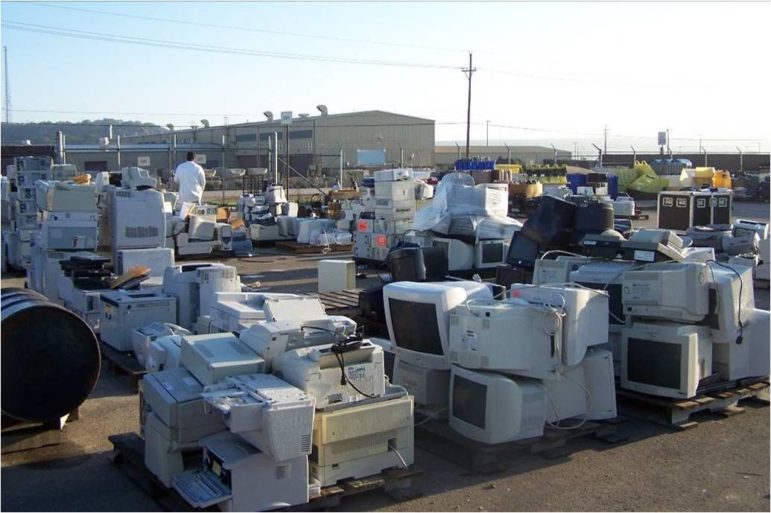
November 20, 2016; The Telegraph
Catholic Charities Diocese of Springfield in Illinois has kicked off its electronic recycling project in its Alton, Illinois location. The volunteer project has been developed in partnership with the EPA-approved collector CJD E-Cycling, a company that “accommodates the needs of Illinois residents due to the new law set forth banning electronic waste in landfills.”
Teaming up with the family recycling business that is said to have “been a boon in the area” since 2010, the e-cycling collaboration strategically supports the community’s efforts to safely dispose of outdated electronic devices while raising money for Catholic Charities programs. In addition to enhancing green initiatives, a percentage of the proceeds will go towards the nonprofit’s food pantries, counseling services, homeless prevention, and senior assistance programs, which annually serve thousands of people.
Underscoring Catholic Charities’ notable community outreach over the years, director Denise Brown applauds her “small but great team who are involved in making connections with different organizations.” While the nonprofit relies most on clothing and food donations, Brown says that they advertised wherever they could to get the e-cycling project going in a positive way. Community residents responded by dropping off truckloads of devices such as hard drives, computer monitors, mp3 players, and “anything with a cord.”
Sign up for our free newsletters
Subscribe to NPQ's newsletters to have our top stories delivered directly to your inbox.
By signing up, you agree to our privacy policy and terms of use, and to receive messages from NPQ and our partners.
CJD employee Tammy Wolff said, “People love it because they don’t know what to do with old electronics…you’re not supposed to put them in landfills anymore, so they need somewhere to take them.” Considering this, Brown appears to be on target to point out that the project “would be a different way to help out.” She emphasized that while “we try to be as green as we possibly can…every little bit helps.”
Many nonprofits would agree with Brown. Other organizations have also picked up on the viable benefits of collaborating to develop “green-tech” e-cycling project collaborations. Meantime, 501(c)(3) organizations like the National Center for Electronics Recycling (NCER) fully dedicate themselves towards developing infrastructures that broaden channels to perpetuate the national recycling of used electronics. For-profit collaborators have also shown support for such efforts over the years. (Dell, HP, and IBM have been so credited.) Best Buy first advertised RFPs for consumer electronic recycling grants back in 2007. State and federal efforts are also evident. For instance, the Florida Department of Environmental Protection funds projects “to seed the development of sustainable and ongoing electronic collection and recycling programs at the county level.” Indeed, e-cycling contractors continue to be sought out by county governing bodies across a number of states, including Connecticut, Illinois, and California. More than two dozen U.S. states continue to gear their environmental protection laws towards regulating e-waste.
Despite pending concerns about the latest political climate that may have a detrimental impact on the environment, including the potential death on arrival of the U.S. commitment to the UN Paris Climate accord, opportunities exist for nonprofits to collaboratively address the global concern over problems such as e-waste. Many Americans are gearing up to defend environmental policies in consideration of President-elect Trump’s choice of transition team member Myron Ebell for the EPA (described by the New York Times as a “climate contrarian.”) As we are encouraged to focus on coming together despite the concerning road ahead, positive steps taken by local organizations like Catholic Charities can only succeed in gaining our attention and support.—Noreen Ohlrich













